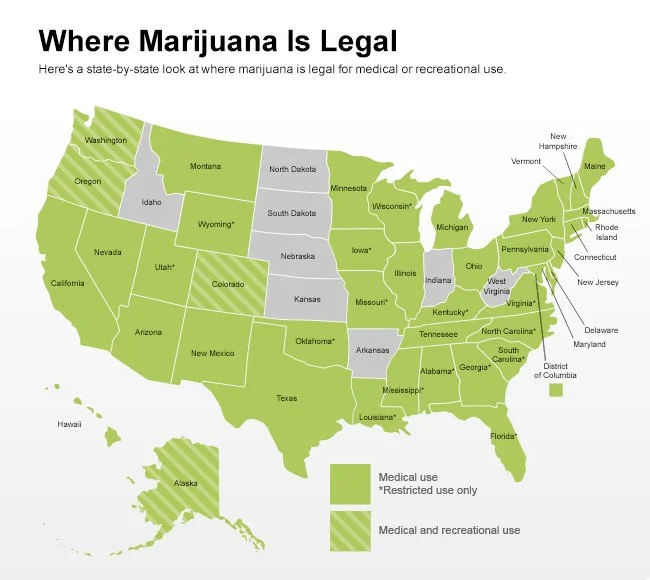Florida legalizes medical marijuana
This is part one of a two-part post detailing the legalization of medical marijuana in Florida. (See part two: Florida Legalizes Medical Marijuana: The Benefits and Risks) Dr. Ryan explains what was legalized, how patients may access the drug and his opinion on the research that is being collected on patients utilizing the drug.
What it means that Florida Legalized Medical Marijuana.
In November 2016, the citizens of Florida approved the ballot initiative Amendment 2, allowing the use of medical marijuana for certain limited conditions. This was not unexpected, although Florida professional medical organizations opposed the change. A total of 25 states have approved some form of medical marijuana, and a recent Gallup poll shows that 60 percent of Americans are in favor of limited medical use.
Obtaining Medical Marijuana in Florida
The process of approval for a Florida patient to begin using marijuana is complex. Patients must first see a certified cannabis prescribing physician, who has passed a course and registered with the State. At this time, there are just over 1,000 approved doctors (of almost 68,000 licensed Florida physicians). The prescribing doctor must fully examine the applicant. The doctor must determine that the patient suffers from an approved medical indication and that marijuana use would likely outweigh the potential health risks for the patient. The patient can then apply for a dispensary card and fill the marijuana prescription from an approved dispensary. The drug is provided as an oil extracted from marijuana plants and is taken orally; the law does not permit smoking marijuana.
Although marijuana use for these medical conditions is legal in Florida, use is still illegal under federal law. This creates a dilemma for doctors, since the United States Drug Enforcement Agency (DEA) regulates a doctors ability to prescribe drugs. Patients using medical marijuana must remember that it is a federal felony to transport marijuana across state lines, even if the person doing so is an approved medical marijuana patient. Transporting marijuana on an airplane, even between cities in a medical marijuana state, also may lead to federal drug-transportation charges. The DEA is also making legal efforts to obtain access to state prescription databases for detecting illegal use of prescription drugs.
Supporters claim that legalization will promote research about marijuana. Cannabis prescribing physicians are required to submit patients’ charts to the Florida Department of Health, which will allow research on marijuana's effect on patients suffering from ALS, cancer, glaucoma and other diseases. I personally doubt the validity of this data, since there are no untreated comparison patients being studied in the same fashion, and both prescribers and patients have a self-interest in continued marijuana use.
In an upcoming post, I'll review available research about the effectiveness, benefits & risks of marijuana.

